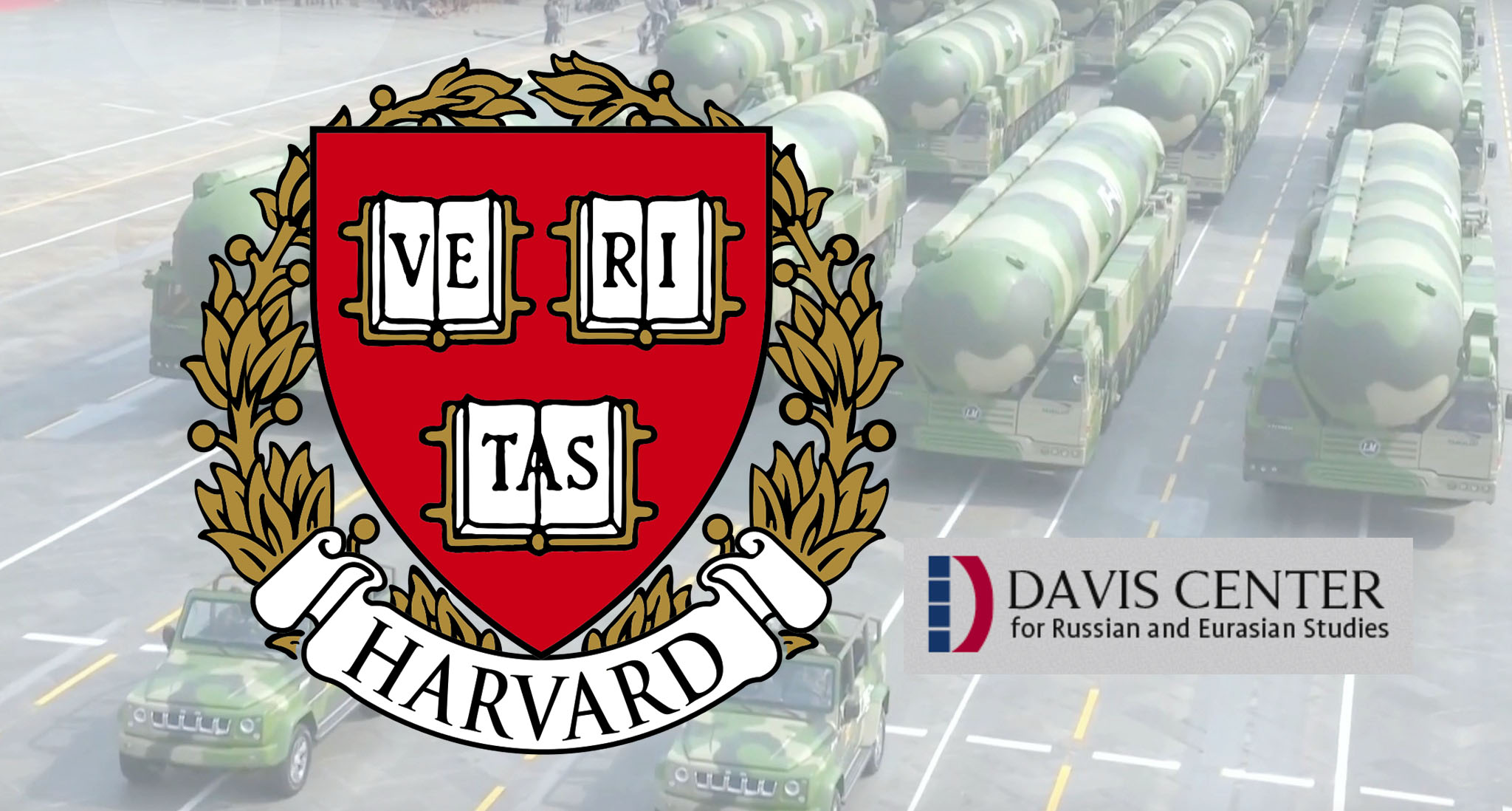Denial and deception are part and parcel of nuclear arms control processes and negotiations, the Center’s J. Michael Waller said on a Harvard panel January 14.
Denial and deception, or D&D, is a Western term to describe concealment (denial) and the spectrum of efforts to mislead other about capabilities, strategies, and intentions (deception).
Waller addressed a Harvard group of next-generation arms control advocates and practitioners from around the world, including the United States, NATO countries, Ukraine, Russia, India, and China.
“I was pleased that Harvard afforded me to give the group a very different point of view,” Waller said.
The event was organized by the Arms Control Negotiation Academy (ACONA) of the Davis Center for Russian and Eurasian Studies at Harvard University. ACONA describes itself as a “12-month, high-level professional development program for a competitively-selected cohort of 16 rising international security experts and practitioners.”
China, Iran, North Korea, and Russia routinely use D&D to deceive and outwit the United States on arms control. Some argue that mobile intercontinental ballistic missiles (ICBMs), like the Chinese DF41 missiles pictured above on mobile launchers, are inherently part of D&D because they are constantly on the move and deny the US the ability to target them.
The Obama administration shut down the intelligence community’s Foreign Denial and Deception Committee to monitor and assess D&D.
Waller was the last speaker on a panel with American, Chinese, Russian, and Ukrainian colleagues discussing the role of coercion and incentives in arms control negotiations. He wrapped up their remarks with his own presentation on D&D.
‘Many in the arms control community don’t like talking about denial and deception’
“Inducive and coercive measures, parties with paranoia, goodwill, hostility, verification, confidence-building, deterrence of negative policies, building trust or coercively building trust – D&D is part of all these aspects of arms control,” Waller said.
Some of Waller’s key points:
- “A part of the role of coercion and incentives in arms control negotiations is deception and subversion.”
- “These darker aspects of arms control often evade the negotiator and, in Western cultures, seldom enter into the calculus of the arms control process.”
- “Many in the arms control community don’t like talking about denial and deception, or D&D, as we call it in shorthand, because it doesn’t fit the polite realm of international diplomacy and the mere discussion of it often offends people.”
- “Which is precisely why we need to talk about it.”
D&D is a reality that arms controllers have to face
“Denial and deception are vital to the development and advancement of any competitive technology, but for our purposes are a western term about weapons development,” Waller told the ACONA group. “Every nuclear power practices D&D.” He continued:
“Denial is the practice of denying information to the other side about one’s technological progress or lack thereof, of production, of deployment, and of doctrines and policies that guide both weapons development and arms control. It is the set of procedures and practices to DENY the adversary any knowledge of what one is doing. Denial is through camouflage, subterfuge, concealment, and the whole range of human factors to prevent the other side from knowing.”
“Deception is related but different. Deception is the active measure of deceiving the opponent to mislead him, make him think that something is accurate or true when it is not, making him believe falsehood is truth and that the truth is a falsehood.”
Deception versus disinformation
“Deception is different from disinformation, a term that has entered the world’s daily political discourse of late. Disinformation is the deliberate action, or even a crafted product, that is intended to manipulate one’s perceptions and actions through the use of purposeful distortions and falsehood,” Waller said.
“The difference between deception and disinformation is that the deception might not be ‘information’ at all. It might be the creation of an entire false program or technology that is meant to be discovered but which, in the end, is not a real part of one’s weapons program. It could be a false policy or strategy, or one that is distorted to deceive the opponent about the real one. It might involve falsehoods about assets or vulnerabilities of a technological supply chain, or command and control, or doctrine,” he explained.
“A nuclear power will integrate D&D into its entire nuclear weapons program. D&D is fundamental to gaining an advantage – whether technological or psychological – over the adversary and deceiving the adversary into making certain errors to place it at a disadvantage and keep it there,” said Waller.
‘D&D is a calculus that must enter every stage of arms control thinking, strategy, and negotiation’
More of Waller’s points:
- “Properly done, D&D are integrated into diplomacy, public affairs, public diplomacy, and other forms of statecraft to allow one to build or keep oneself at a strategic advantage.”
- “This means that the practice of D&D requires the opposite power be able to detect, expose, and counter it.”
- “This naturally has a big effect on arms control strategy and policy.”
- “Therefore, D&D force secret intelligence to play major roles not only in the development and enhancement of one’s own nuclear forces, as well as the arms control process to prevent the adversary from gaining or maintain a particular advantage.”
- “And so D&D is a calculus that must enter every stage of arms control thinking, strategy, and negotiation.”
